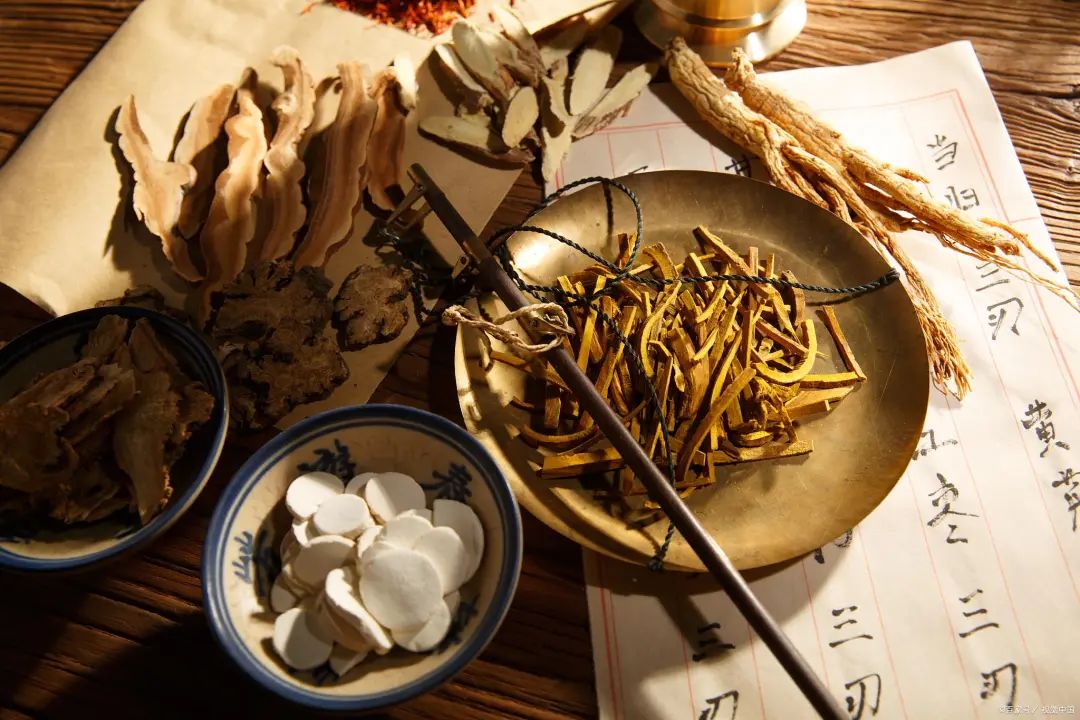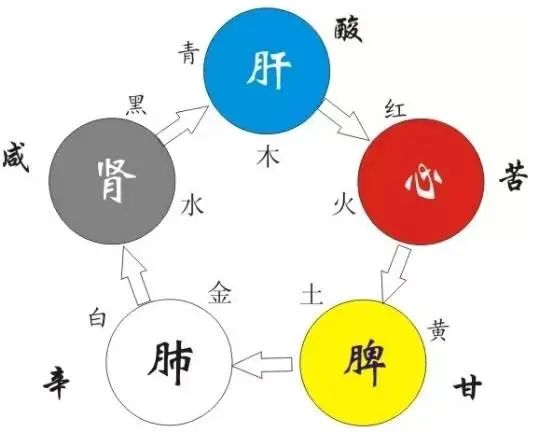Traditional Chinese Medicine (TCM) posits that the human body is a microcosm interconnected with nature, where the health of the five organs is closely related to the balance of Yin-Yang and the Five Elements. In the Huangdi Neijing and the theories of Master Ni Hai Xia, the “Five Evils” are significant pathways for disease invasion, while the interactions of the Five Elements are the core principles for regulating the body. This article will explore the relationship between Yin-Yang, the Five Elements, and the five organs, the impact of the Five Evils on the human body, and daily health maintenance methods, guiding you into the wisdom of TCM health preservation.

1. Yin-Yang and the Five Elements: The “Invisible Hand” of Organ Function
The Five Elements (Wood, Fire, Earth, Metal, Water) correspond to the five organs (Liver, Heart, Spleen, Lung, Kidney), reflecting both physiological functions and the roots of pathological changes.
-
Generating Relationships: Wood generates Fire (Liver nourishes Heart), Fire generates Earth (Heart assists Spleen), Earth generates Metal (Spleen benefits Lung), Metal generates Water (Lung moistens Kidney), Water generates Wood (Kidney nourishes Liver).
-
Controlling Relationships: Wood controls Earth (Liver regulates Spleen), Earth controls Water (Spleen restrains Kidney), Water controls Fire (Kidney suppresses Heart), Fire controls Metal (Heart regulates Lung), Metal controls Wood (Lung pacifies Liver).
Master Ni Hai Xia has pointed out: “If the Five Elements are imbalanced, the five organs will surely suffer from evils.” For example, staying up late for extended periods harms the Liver (Wood), excessive Liver Fire can control the Spleen (Earth), leading to loss of appetite; while Spleen deficiency (Earth) cannot restrain Kidney Water (Water), resulting in edema or frequent urination. Therefore, health preservation should aim for balance among the Five Elements.

2. The Five Evils Causing Disease: The “Invisible Push” of External and Internal Injuries
TCM categorizes pathogenic factors into the “Five Evils”: Zheng Evil, Xu Evil, Shi Evil, Wei Evil, and Zei Evil. Taking the heart as an example:
-
Zheng Evil: intrinsic heart disease (e.g., excessive Heart Fire);
-
Xu Evil: Liver (Wood) deficiency affecting the Heart (Fire), leading to insufficient heart blood;
-
Shi Evil: excessive Spleen (Earth) harming the Heart (Fire), causing chest tightness and irritability;
-
Wei Evil: weak Lung (Metal) unable to control the Heart (Fire), resulting in dry mouth and tongue;
-
Zei Evil: Kidney (Water) deficiency failing to restrain the Heart (Fire), causing insomnia and vivid dreams.
Master Ni Hai Xia emphasizes: “The Five Evils do not exist in isolation; they often trigger chain reactions due to the interactions of the Five Elements.” For instance, prolonged Kidney deficiency (Water) can lead to excessive Heart Fire (Fire), subsequently causing hypertension or palpitations; at this point, it is necessary to “tonify Kidney Water to control Heart Fire.”

3. Daily Health Maintenance: Harmonizing the Five Elements and Defending Against the Five Evils
1. Dietary Nourishment: The Five Flavors Corresponding to the Five Organs
-
Liver (Wood): sour flavor benefits the Liver; foods like hawthorn and lemon are recommended; avoid spicy foods (to prevent excessive Wood Fire).
-
Heart (Fire): bitter flavor clears the Heart; lotus seeds and bitter melon are recommended; limit greasy foods (to prevent phlegm-fire disturbing the Heart).
-
Spleen (Earth): sweet flavor strengthens the Spleen; foods like millet and pumpkin are recommended; avoid raw and cold foods (to prevent Spleen deficiency and dampness).
-
Lung (Metal): pungent flavor disperses the Lung; foods like ginger and scallions are recommended; avoid dryness and heat (to prevent Lung Yin deficiency).
-
Kidney (Water): salty flavor nourishes the Kidney; moderate amounts of kelp and black beans are recommended; control salt intake (to prevent Water damaging the Spleen).
2. Acupoint Massage: The “Switches” of the Generating Relationships of the Five Elements
-
Liver Qi stagnation affecting the Spleen: massage the Tai Chong point (Liver channel) and Zu San Li point (Spleen channel) to soothe the Liver and strengthen the Spleen.
-
Heart-Kidney disharmony: moxibustion on the Yong Quan point (Kidney channel) and Nei Guan point (Pericardium channel) to return fire to its source.
3. Emotional Regulation: The Five Emotions in Balance
Anger harms the Liver, joy harms the Heart, overthinking harms the Spleen, worry harms the Lung, and fear harms the Kidney. Master Ni Hai Xia suggests: “Emotions are the source of internal evils; calming the mind is essential to guard the spirit.” It is recommended to harmonize emotions through meditation and the Ba Duan Jin (Eight Pieces of Brocade) exercise.
Conclusion
The principles of Yin-Yang and the Five Elements form the foundation of TCM health preservation, while the Five Evils serve as warning signals for disease invasion. As stated in the Suwen: “The sage treats not the already sick but the not yet sick.” By focusing on the balance of the Five Elements and defending against the Five Evils in daily life, one can achieve a state of health where “righteous Qi resides within, and evils cannot invade.” May every reader find their own path to health preservation through ancient wisdom.

